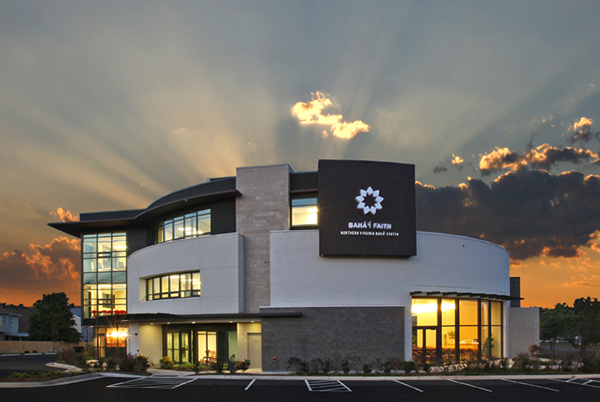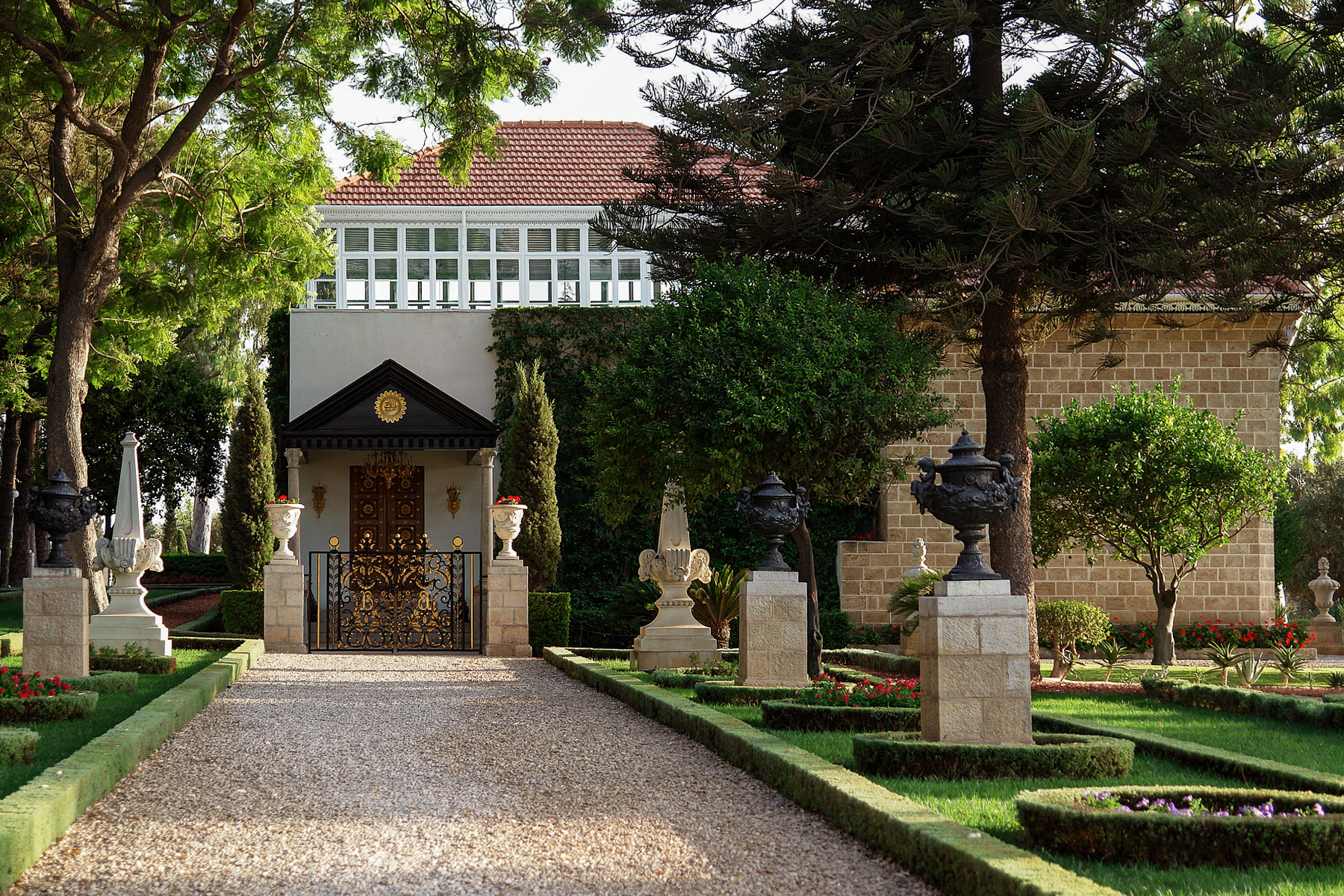|
print
friendly version of lecture notes
|
Practices of the Baha'i Faith
Sacred Places:
No local church buildings (meet in
homes, public schools, community centers).
Eight Temples worldwide (all
nine sided) open to anyone, Baha’i or not, for prayer, meditation and for
hearing readings from revelations (holy books) of all religions.
Baha’is
expect that, in time, every local community will have a Baha’i center.
|

Baha'i Temple, North America (Wilmette, IL) |

Baha'i Center of Northern VA, Sterling VA |
-
Baha’is meet in local centers
(or rented space or members homes) for devotions and many other activities – there are dozens of local Baha’i centers in the U.S.
alone, as well as several national and local Centers elsewhere in the
world.
-
But the houses of worship
(the Temples) have a special significance. In the house of worship, only recital of sacred texts and acapella music are permitted – no sermons or instrumental music.
Baha'i's also have sacred places of
pilgrimage - mostly in Israel - marking memorials for the Bab and
Baha'u'llah (places where they died).
|

Shrine of Baha'u'llah near
Acre, Israel |

Shrine of the Bab in Haifa,
Israel |
No clergy or priesthood: leading
group worship and other group activities is shared by everyone in the community
Sacred Time:
Baha’i calendar: The Baha’i calendar is unique in having 19 months of 19 days each, with 4 (or 5) additional "intercalary"
days (just prior to the last month) to maintain the solar based year (similar to the Zoroastrian
calendar). Baha’i holidays begin at sundown. The dates are set based on occurrence of the
Spring Equinox in Tehran (Naw Ruz) - the start of a new year.
-
The "Intercalary" days (end
of February), not part of any month, occur just before the last month in the
Baha'i Calendar. These are a time of gift-giving and charity.
-
Following the 4 or 5 "intercalary"
days, Baha'is have a month of fasting (month of
Ala, March 1 or 2 - March 18 or 19). Baha’is (like
Muslims) fast from sun-up to sun-down during this last of the 19 day Baha’i months
-
Holidays are commemorated with no
work, "feast" celebrations (open to non-Baha’is) within the
local Baha’i Community and, in some cases, fasting.
Sacred Activities:
Regular communal worship: In
addition to annual holy days, Baha’is gather for a "Feast day" every
nineteen days, at the start of a new Baha’i month. This is their equivalent of
a "Sabbath." The Feast consists of three parts: prayer,
"consultation" (i.e., Community business is discussed), and
socializing. Ordinarily only Baha’is of a given Local
Community can attend a Feast day celebration because private Community
matters are discussed during the consultation. Occasionally, a given Community
will hold a "Unity Feast" where consultation will not take place: then
any Baha’is from other Communities and non-Baha’is may attend.
Other activities include regular
(weekly, monthly) "firesides" where Baha’is and their
non-Baha’i friends and others interested in learning about the faith, gather
for discussion and socializing. "Deepenings" are held for study
of Baha’i and other sacred texts.
A Sacred Way of Living:
Group decision making: Consultation
and consensus:
-
Leadership at all levels is
through election from among all members without nominations or campaigning.
Each voting member simply selects the nine names he or she honestly feels
most suited to leadership. Those nine in the group who receive the most
votes are thus elected to the post.
-
Group decisions are always made
through group consultation and discussion leading, ideally, to unanimous
conclusion. Ideas brought to the discussion are seen as belonging to no one
in particular and, thus, to all and are considered in the objective light of
equality. The vote of the majority is not the preferred way of group
decision making.
Social teachings as most important to
spread:
Although the Baha'i Faith is a
"universal" religion and, thus, certainly open to converts, they do
not seek converts aggressively. The hope is that, by example, they can model
the kind of social attitudes and practices (e.g., consultation and consensus)
that can create a peaceful, global human community. If their social teachings
become the norm for human society, they do not concern themselves with
everyone accepting their spiritual teachings (since they consider that every
religion already shares the same basic spiritual teachings).
return to top
|



